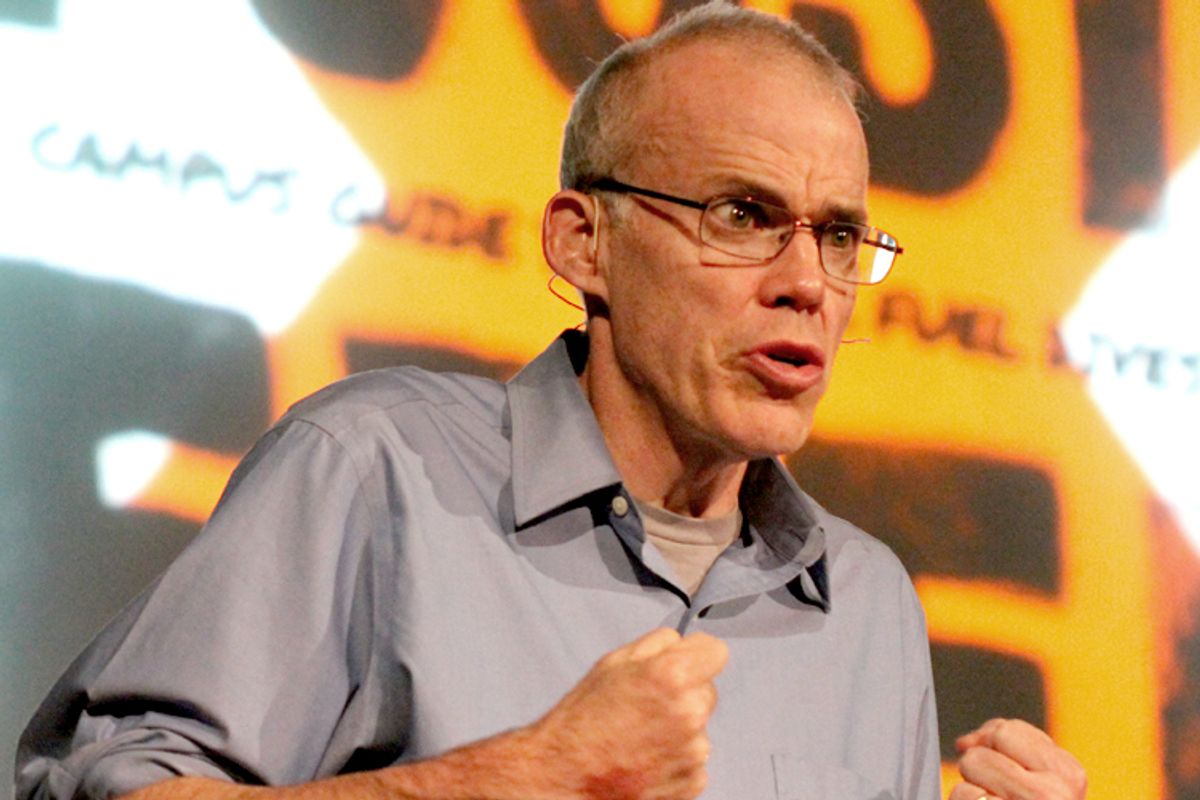In a scathing editorial for Rolling Stone, 350.org's Bill McKibben tore into President Obama's lack of action on climate change. The cynics, he concedes, were right: nothing the president's done has been true to his promises to "end the tyranny of oil" or "slow the rise of the oceans." Here's how McKibben sees Obama's legacy:
Under Obama we've had the warmest year in American history – 2012 – featuring a summer so hot that corn couldn't grow across much of the richest farmland on the planet. We've seen the lowest barometric pressure ever recorded north of Cape Hatteras, North Carolina, and the largest wind field ever measured, both from Hurricane Sandy. We've watched the Arctic melt, losing three quarters of its summer sea ice. We've seen some of the largest fires ever recorded in the mountains of California, Colorado and New Mexico. And not just here, of course – his term has seen unprecedented drought and flood around the world. The typhoon that just hit the Philippines, according to some meteorologists, had higher wind speeds at landfall than any we've ever seen. When the world looks back at the Obama years half a century from now, one doubts they'll remember the health care website; one imagines they'll study how the most powerful government on Earth reacted to the sudden, clear onset of climate change.
Ineffective Congress aside, McKibben wrote, there were at least three key instances where Obama actively made things worse:
• Just days before the BP explosion, the White House opened much of the offshore U.S. to new oil drilling. ("Oil rigs today generally don't cause spills," he said by way of explanation. "They are technologically very advanced.")
• In 2012, with the greatest Arctic melt on record under way, his administration gave Shell Oil the green light to drill in Alaska's Beaufort Sea. ("Our pioneering spirit is naturally drawn to this region, for the economic opportunities it presents," the president said.)
• This past August, as the largest forest fire in the history of the Sierra Nevadas was burning in Yosemite National Park, where John Muir invented modern environmentalism, the Bureau of Land Management decided to auction 316 million tons of taxpayer-owned coal in Wyoming's Powder River basin. According to the Center for American Progress, the emissions from that sale will equal the carbon produced from 109 million cars.
All that, of course, is aside from Obama's failure, so far, to block the Keystone XL pipeline -- McKibben's pet cause, and one he sees as having the potential to at least partially redeem the president. "Should he do the right thing on Keystone XL, a decision expected sometime in the next six months, he'll at least be able to tell other world leaders, 'See, I've stopped a big project on climate grounds,'" McKibben writes. "That could, if he used real diplomatic pressure, help restart the international talks he has let lapse. He's got a few chances left to show some leadership."



Shares